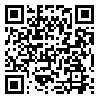Volume 12 -
IJMEHM 2019, 12 - : 29-45 |
Back to browse issues page
Download citation:
BibTeX | RIS | EndNote | Medlars | ProCite | Reference Manager | RefWorks
Send citation to:



BibTeX | RIS | EndNote | Medlars | ProCite | Reference Manager | RefWorks
Send citation to:
Asgardoon M H, Azizi S, Ebrahimi A, Ahmadian M H. Futility in Complementary and Alternative Medicine: A Critical Review from an Ethical Perspective. IJMEHM 2019; 12 :29-45
URL: http://ijme.tums.ac.ir/article-1-5964-en.html
URL: http://ijme.tums.ac.ir/article-1-5964-en.html
1- Iranian Student Society for Immunodeficiencies, Students’ Scientific Research Center, Tehran University of Medical Sciences, Tehran, Iran
2- Student Research Committee, School of Medicine, Iran University of Medical Sciences, Tehran, Iran
3- School of Medicine, Tehran University of Medical Sciences, Tehran, Iran
4- Students’ Scientific Research Center, Tehran University of Medical Sciences, Tehran, Iran
2- Student Research Committee, School of Medicine, Iran University of Medical Sciences, Tehran, Iran
3- School of Medicine, Tehran University of Medical Sciences, Tehran, Iran
4- Students’ Scientific Research Center, Tehran University of Medical Sciences, Tehran, Iran
Abstract: (4499 Views)
Several definitions for medical futility has been proposed in the literature. Medical futility is defined as the condition in which an intervention, either for diagnosis, prevention, treatment, rehabilitation or other medical goals, has no benefit for the individual patient. This critical review aimed to increase the understanding of physicians and other healthcare providers on the issue of futility in complementary and alternative medicine (CAM). Our comprehensive search resulted in more than 1000 studies; unrelated studies were excluded by title and abstract screening, then 219 full-texts were read and finally, 118 studies were included. The conclusion concerning whether or not it is morally acceptable to provide a futile treatment in CAM, becomes a controversial issue based on different approaches. Using futile treatments is not acceptable according to the duty-based approach, and the principle of justice. In contrast, the case-based approach and the principle of autonomy of the patient, hold that such treatments could be morally acceptable. Based on utilitarianism, only evidence-based treatments can be morally discussed, and those CAM therapies that have been shown to be futile, should be prohibited; thus health care providers must not offer them to patients since it would be a kind of deceit. We suggest that more comprehensive studies should be performed to clarify the boundary between placebo, nocebo, and futility.
Keywords: Medical futility, Complementary and alternative medicine, Moral philosophy, Analytical review
Type of Study: Review |
Subject:
Medical Ethics
Received: 2017/12/15 | Accepted: 2019/07/16 | Published: 2019/07/16
Received: 2017/12/15 | Accepted: 2019/07/16 | Published: 2019/07/16
| Rights and permissions | |
 |
This work is licensed under a Creative Commons Attribution-NonCommercial 4.0 International License. |





